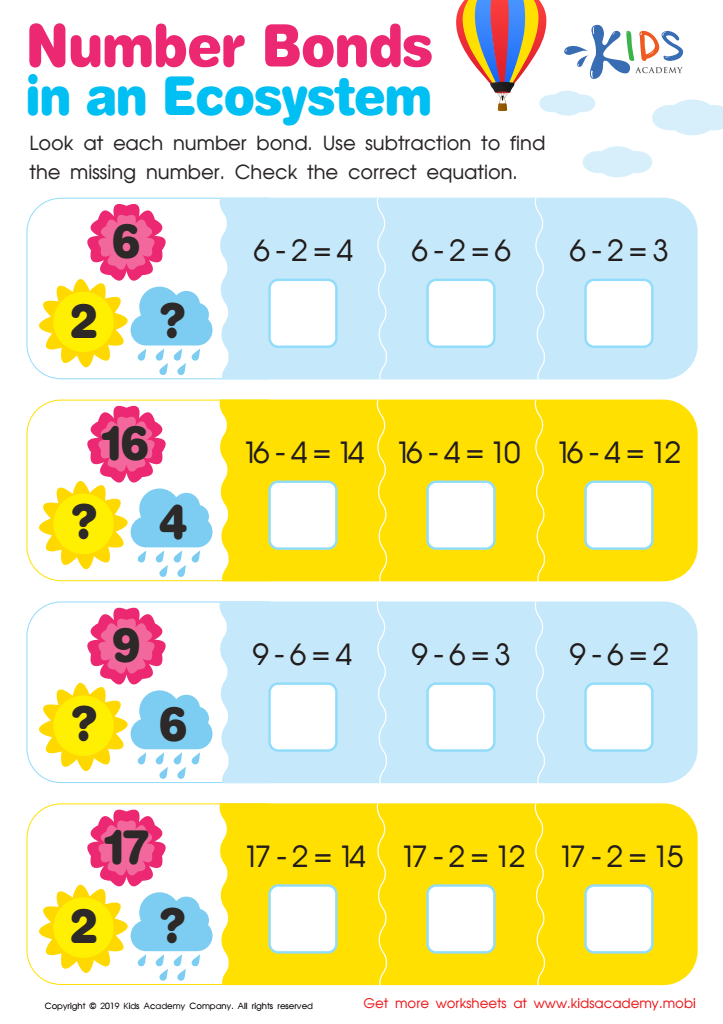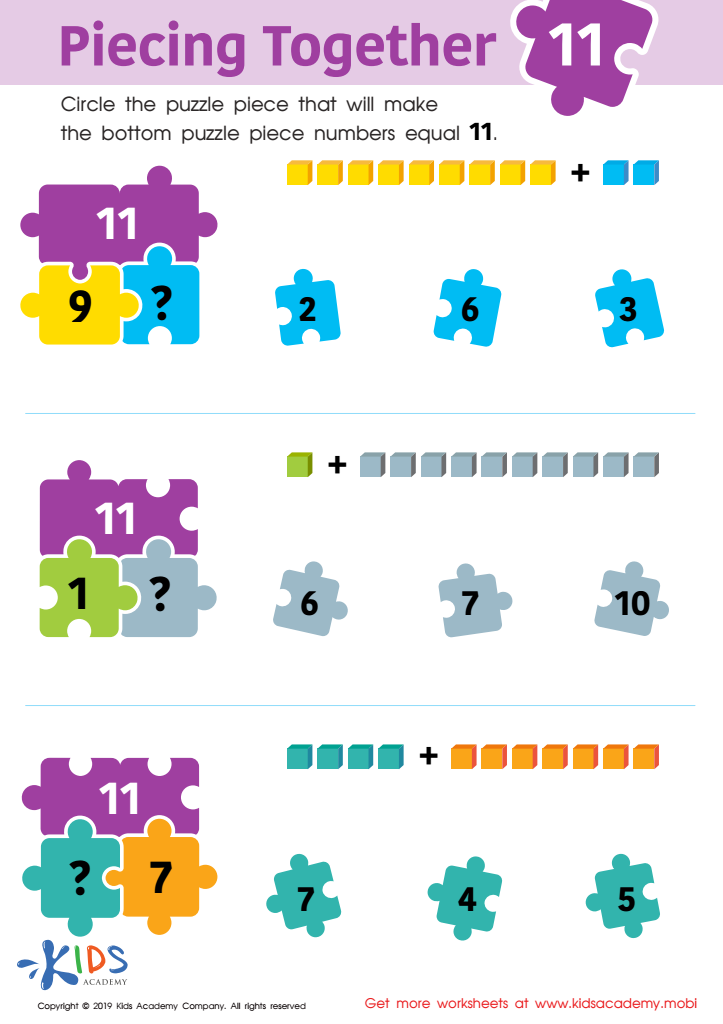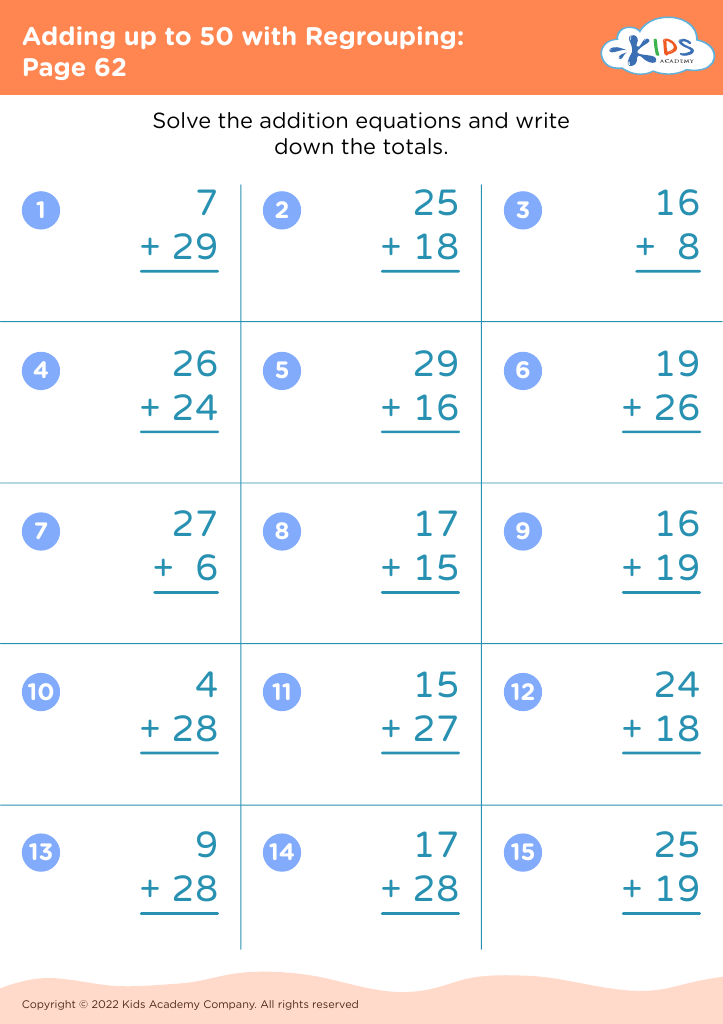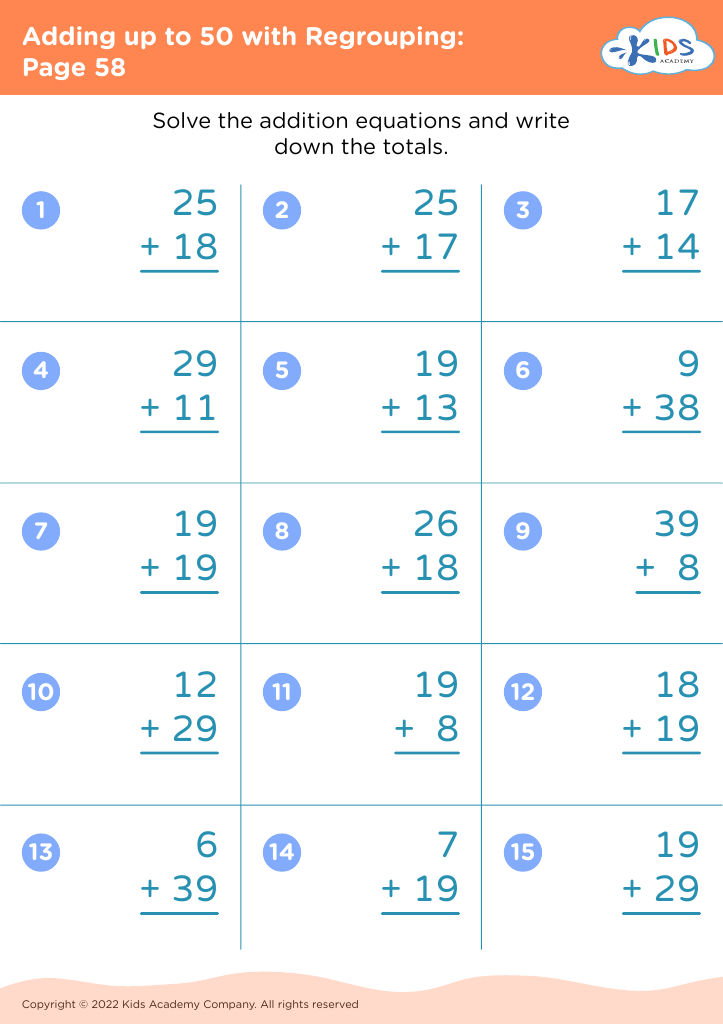Improving addition skills Addition & Subtraction Worksheets for Ages 5-9
4 filtered results
-
From - To
Enhance your child's math abilities with our "Improving Addition Skills" worksheets, designed for ages 5-9. These engaging resources provide a fun and interactive way to master addition and subtraction concepts, fostering essential skills at an early age. Our carefully crafted worksheets include a variety of exercises that adapt to different learning levels, ensuring personalized practice. With colorful illustrations and relatable themes, children will love practicing their math skills. By integrating these worksheets into home learning, parents can boost their kids' confidence in mathematics, paving the way for academic success. Start your child’s mathematical journey today with our interactive worksheets!


Number Bonds in an Ecosystem Worksheet


Piecing Together 11 Worksheet
Improving addition and subtraction skills in children aged 5-9 is crucial for several reasons. First and foremost, these fundamental mathematical operations form the foundation for all future math learning. Mastery of basic addition and subtraction not only enhances a child’s arithmetic abilities but also boosts their confidence in tackling more complex mathematical concepts as they progress through school.
Moreover, strong addition and subtraction skills are essential for everyday life. From managing money to calculating time, these skills play a vital role in developing problem-solving abilities that extend beyond the classroom. When parents and teachers actively engage in reinforcing these skills, they promote critical thinking and foster a positive attitude towards mathematics.
Additionally, a solid grasp of these foundational skills can prevent future learning gaps. Children who struggle with addition and subtraction may experience difficulties in higher-level math, leading to frustration and a lack of interest in the subject. By prioritizing these skills early on, parents and teachers help create a stable math proficiency that supports academic success.
Finally, fostering a supportive learning environment where practice and encouragement are emphasized can cultivate a lifelong appreciation for mathematics. This ultimately helps children not only in school but also in their personal development as they grow into informed, capable adults.



 Assign to My Students
Assign to My Students
















